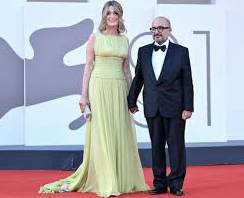
Gennaro Sangiuliano steps down after apologising to his wife over infidelity and clarifying allegations of misconduct.
Gennaro Sangiuliano, Italy’s former culture minister, has resigned following the public revelation of his extramarital affair, which he tearfully apologised for in a heartfelt statement to his wife. His resignation came after nearly two weeks of speculation surrounding his relationship with consultant Maria Rosaria Boccia.
The scandal escalated when rumours circulated that Boccia had been granted access to sensitive government documents related to an upcoming Group of Seven (G7) culture ministers meeting. These claims were later linked to Boccia’s announcement on social media, where she suggested she had been formally appointed as an adviser for major events in the ministry—an appointment that Sangiuliano denied.
Prime Minister Giorgia Meloni, a member of the far-right Brothers of Italy party, accepted his resignation, describing Sangiuliano as “an honest man” but acknowledging the embarrassment the affair had caused. In his resignation interview, Sangiuliano explained that Boccia’s appointment had never been finalised due to the potential conflict of interest arising from their relationship. He also asserted that he personally covered her expenses during her time working with the ministry and that she had never had access to confidential government material.
Sangiuliano took responsibility for the affair, stating, “The first person I must apologise to, an exceptional person, is my wife,” before also apologising to Meloni for the embarrassment caused to both her and the government. Meanwhile, Boccia used her social media platforms to counter the narrative, posting recordings that seemingly confirmed her appointment and insisted that her expenses were paid by the ministry, despite Sangiuliano’s denials.
Sangiuliano’s tenure at the ministry had been marked by several significant actions, including replacing foreign directors at Italy’s leading museums and installing a new head for the Venice Biennale to counter perceived left-wing bias. He also introduced a controversial five-euro entrance fee to the Pantheon, Italy’s most visited cultural landmark.
In her statement, Prime Minister Meloni thanked Sangiuliano for his “extraordinary work” in enhancing Italy’s cultural heritage, both domestically and internationally. Later, she swore in Alessandro Giuli, head of Rome’s MAXXI museum, as the new culture minister.












